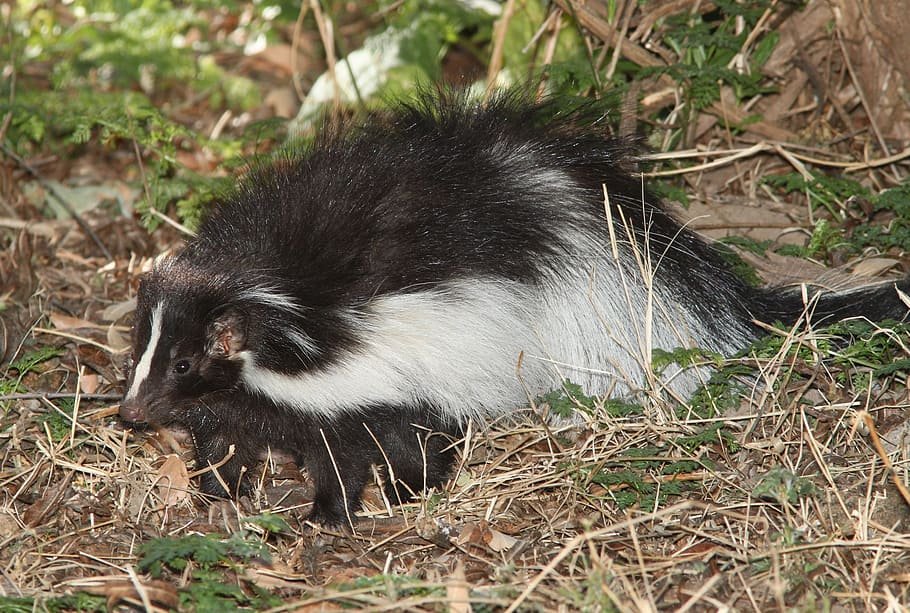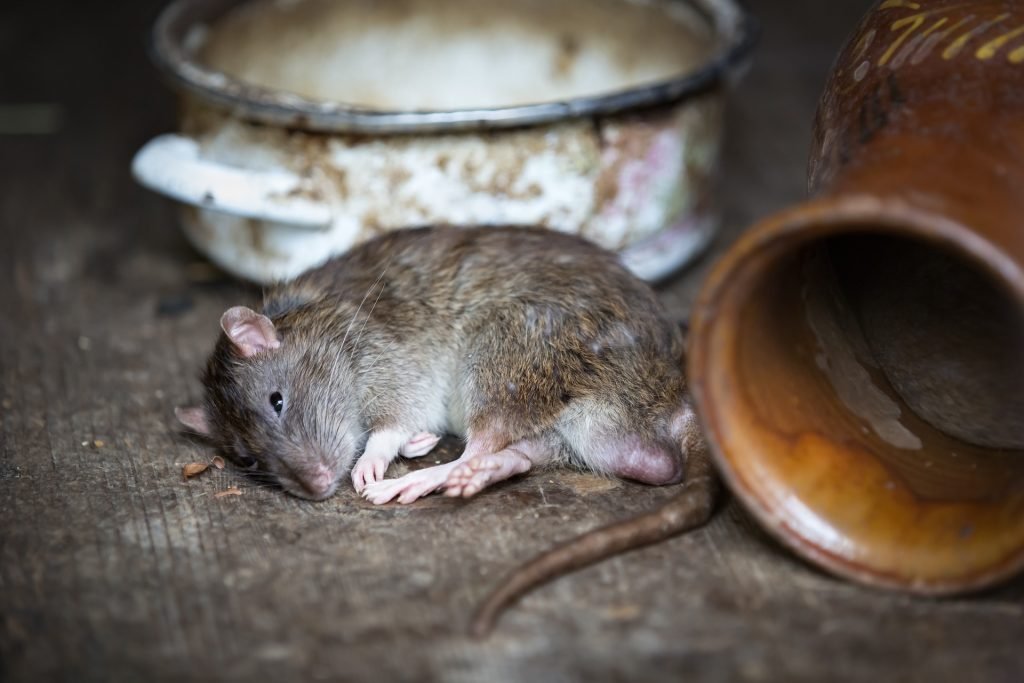Wildlife Odor Control

It’s never an easy task to completely remove wildlife odors in the home. The source of the odor needs to be located, eliminated, and decontaminated all materials the foul odor has infiltrated. Many odor elimination items are available on the market, but store-bought odor neutralizing solutions don’t guarantee the smell will be gone forever. Odor masking sprays, oils, wipes, candles, plug-ins, and electric deodorizers are often not strong enough to eliminate wildlife odors and don’t solve the root of the problem.
Sanitizing and deodorizing professionals come with specialized equipment and extensive knowledge in their industry. Biohazard is one of the most common reasons why someone would need to deodorize their home. A dead animal or wildlife feces are considered biohazards. If either is found in your home, they must be removed and cleaned to neutralize nasty smelling odors and eliminate any harmful diseases carried in the feces/dead animals.
However, locating the deceased animal is not always straightforward. Worse, it’s not always evident that the foul odor is coming from a dead animal; it could just be a vile odor emanating from elsewhere. That’s where odor detecting services from wildlife control companies that specialize in cleaning your house can help. Give Animals Happen a call at 833-633-1120 to learn more about odor removal and infestation decontamination.
What Does Wild Animal Odors Smell Like?
 When wild animals infest your home, they start emitting distinct odors. These pest odors indicate which species are present in your home and where they may be hiding.
When wild animals infest your home, they start emitting distinct odors. These pest odors indicate which species are present in your home and where they may be hiding.
Mice and rats have distinct odors of their own. Rats have a pungent odor that is akin to ammonia. On the other hand, Mice have a urine odor similar to rats, but it’s more of a musty smell.
Bat guano, also known as bat droppings, has a strong odor and is usually one of the first signs that bats are roosting in your attic. Guano will begin to build up inside your attic, on the walls, and produce an ammonia-like smell (similar to rodent droppings.)
It’s difficult to describe the smell of dead animals. However, most people will identify something is wrong with only one whiff of the revolting and puke-inducing odor of a dead animal carcass. The stench of a dead animal can stay for days, weeks, or months, depending on the size of the animal and the environmental conditions in the location where it died. The repulsive odor will stay until the animal carcass has dried thoroughly. 1Go To Source health.hawaii.gov -“Odor Nuisance”
The Dangers Of Wildlife Odors
Although the smell of nuisance animal feces or a dead animal may not make you sick, your sense of smell will often warn you of impending danger. An unpleasant odor is usually a sign that wildlife feces has accumulated in the attic or an animal has been trapped inside a wall and is decomposing.
Dead Animal Hazards
 Humans who come into close touch with dead animals are at risk of contracting diseases or parasites that the animals once carried. The carcass may pollute soil or water supplies with hazardous diseases like cryptosporidium and bayliscaris if left neglected. 2Go To Source aphis.usda.gov -“Wildlife Carcass Disposal “
Humans who come into close touch with dead animals are at risk of contracting diseases or parasites that the animals once carried. The carcass may pollute soil or water supplies with hazardous diseases like cryptosporidium and bayliscaris if left neglected. 2Go To Source aphis.usda.gov -“Wildlife Carcass Disposal “
Flies, beetles, worms, crows, and vultures are among the insects and animals that feed on animal carcasses. Beetles and worms consume the remains while fly larvae hatch and grow among the corpses. Humans regard many of these critters as nuisances or pests, and their presence in the home can exacerbate the problem.
Undisposed bodies may be detrimental to pets such as dogs and cats, who are just as susceptible to parasites and diseases.
Wildlife Urine And Droppings
All kinds of animals produce feces when they infest human homes. Regardless of the animal producing the feces, hazardous diseases can lurk within and must be avoided at all times.
When animals break into a house, the attic is one of the most typical places for them to set up shop. The nuisance wildlife will drop urine and poop on insulation, inside air ducts, and within vents. This will not only damage your attic’s build materials but also produce foul-smelling odors that spread diseases carrying spores.
Their waste has been linked to several infectious diseases, putting your loved ones in danger. When animals nest in your attic, diseases like leptospirosis, Hantavirus, and even the plague are a potential risk. 3Go To Source cdc.gov -“Wildlife”
How Is Odor Control Preformed?
The correct disposal of corpses/droppings, disinfection of nearby areas, and deodorization of the affected area are all required for the effective elimination of wildlife odors. Even with gloves on, you should never handle deceased animals, and inappropriate burial can lead to groundwater contamination.
Wildlife Technicians employ an odor eliminator consisting of natural organisms and enzymes that devour decomposing organic odor-causing debris, effectively eradicating the cause of the stink. If the odor source is not detectable (it doesn’t exist), the odor will be concealed using oxidizing agents, aerosols, disinfectants, and foggers with germicides until nature takes care of it. No matter what is causing the unpleasant odor, wildlife odor control specialists will eliminate any odors produced by wildlife in the attic, crawlspace, walls, or anywhere else on the property.
Are Wild Animals Producing A Pungent Odor In Your Home?
Unfortunately, nuisance wildlife odors can enter houses, garages, sheds, and other structures on local properties due to wildlife such as skunks, dead rodents, and other animals. Using the newest and most cutting-edge products on the market, wild animal control experts can counteract the stink of skunks or dead animals. They can fog your home with an odor remover to help reduce odors both inside and outside.
Odor control companies have the tools and skills to eliminate the noxious odor that is making your house uninhabitable. If possible, odor removal technicians will also eliminate the source of the smell, which is the ideal solution but not always attainable. Give us a call right now at 833-633-1120 if you’re having trouble with wildlife-related odors.
Sources:
- Hawaii Department of Health. “Odor Nuisance.” Health.Hawaii.Gov, HAWAII STATE ,DEPARTMENT OF HEALT H, June 2017, health.hawaii.gov/vcb/files/2020/04/04272020_Odor-Nuisance-06-2017_ocr.pdf.
- Vantassel, Stephen M., and Mark A. King. “Wildlife Carcass Disposal.” Aphis.Usda.Gov, U.S. Department of Agriculture, 2018, www.aphis.usda.gov/wildlife_damage/reports/Wildlife%20Damage%20Management%20Technical%20Series/Carcass-Disposal-WDM-Technical-Series.pdf.
- Centers for Disease Control and Prevention , National Center for Emerging and Zoonotic Infectious Diseases. “Wildlife | Healthy Pets, Healthy People | CDC.” Cdc.Gov, U.S. Department of Health & Human Services, 9 June 2021, www.cdc.gov/healthypets/pets/wildlife.html.
- Buckman, Robert (2003). Human Wildlife: The Life That Lives On Us. Baltimore: The Johns Hopkins University Press. pp. 93-4
- Is it true that tomato sauce will get rid of the smell of a skunk?. Scienceline. Retrieved on 5 April 2012.
